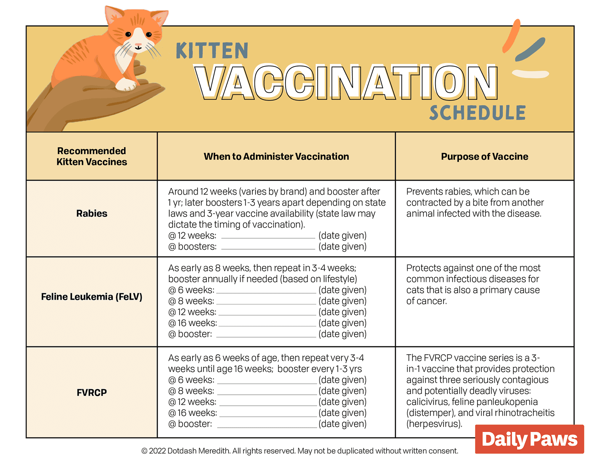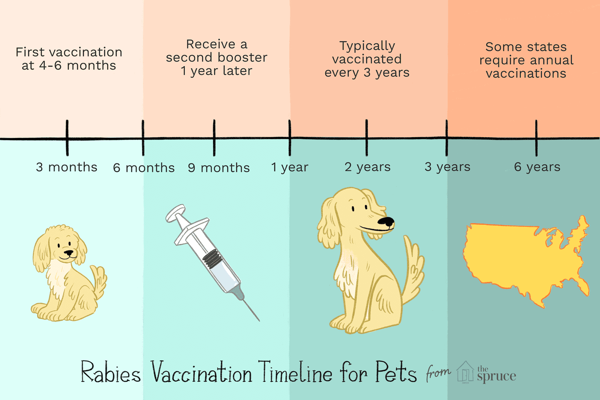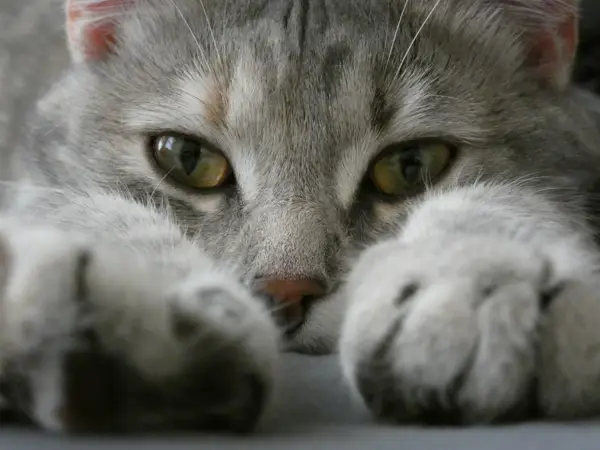Table of Contents:
- Introduction
- Benefits of Rabies Booster Shots
- When to Administer Rabies Booster Shots
- Vaccination Protocol for Cats
- Potential Side Effects
- Prevention of Rabies in Cats
- Laws and Regulations Regarding Rabies Vaccination
Introduction
Rabies is a deadly virus that can affect cats and other animals. In order to protect your feline friend from this disease, it is important to ensure that they receive rabies booster shots as per the recommended schedule.
Benefits of Rabies Booster Shots
Rabies booster shots help boost the immunity of your cat against the rabies virus. By keeping up with these vaccinations, you can significantly reduce the risk of your cat contracting the disease.
Rabies is a deadly virus that can be transmitted to humans through the bite of an infected animal, including cats. It is important to ensure that your cat is up-to-date on their rabies vaccinations to protect both them and yourself from this dangerous disease.
Here are some benefits of giving your cat regular rabies booster shots:
- Prevention of Rabies: By keeping your cat vaccinated against rabies, you are significantly reducing their risk of contracting the virus if they are bitten by an infected animal.
- Legal Requirement: In many places, it is a legal requirement to have your cat vaccinated against rabies. Failure to do so can result in fines or other penalties.
- Peace of Mind: Knowing that your cat is protected against rabies can give you peace of mind and eliminate the worry of potential exposure to the virus.
- Protection for Other Pets: By vaccinating your cat against rabies, you are also helping to protect other pets in your household from potential exposure to the virus.
- Public Health: Keeping your cat up-to-date on their rabies vaccinations helps to contribute to the overall public health and safety by preventing the spread of the virus to humans.
It is important to consult with your veterinarian to determine the appropriate rabies vaccination schedule for your cat based on their age, health, and lifestyle. Regular booster shots are essential in maintaining your cat's immunity against rabies and ensuring their long-term health and well-being.

When to Administer Rabies Booster Shots
It is recommended to administer rabies booster shots to your cat annually or as per the schedule recommended by your veterinarian. Regular vaccinations help ensure that your cat remains protected against rabies at all times.
Rabies is a serious and potentially deadly virus that can affect both cats and humans. In many places, it is required by law to have cats vaccinated against rabies. However, once initial vaccination has been administered, it is important to know when to administer rabies booster shots to ensure your cat remains protected.
It is generally recommended to follow the guidelines provided by the vaccine manufacturer and your veterinarian when it comes to rabies booster shots. Typically, cats should receive a rabies booster shot every 1-3 years, depending on the type of vaccine used and local regulations.
Keep in mind that some areas may have specific laws and regulations regarding rabies vaccinations for cats, so it is important to stay informed and comply with any requirements in your area. Additionally, it is always a good idea to consult with your veterinarian to determine the best vaccination schedule for your individual cat's needs.

Vaccination Protocol for Cats
When it comes to rabies vaccinations for cats, it is important to follow the recommended vaccination protocol. Your veterinarian will be able to advise you on the appropriate schedule for administering booster shots to your cat.
It is important to keep your cat up-to-date on their vaccinations to protect their health and prevent the spread of diseases. One crucial vaccination that cats need is the rabies vaccine.
Do Cats Need Rabies Booster Shots?
Yes, cats do need rabies booster shots to ensure continued immunity against this deadly virus. The rabies vaccine is typically given to kittens around 12 weeks of age, with booster shots required every 1-3 years depending on local regulations and the specific vaccine used.
Regular booster shots are essential to maintain protection against rabies and prevent the spread of the disease to other animals and humans.
Consult with your veterinarian to develop a vaccination schedule that meets your cat's individual needs and keeps them safe and healthy.

Potential Side Effects
While rabies booster shots are generally safe for cats, there may be some potential side effects such as mild fever or lethargy. It is important to monitor your cat after vaccination and consult your vet if you notice any unusual symptoms.
Rabies booster shots are important for maintaining your cat's immunity to this deadly virus. However, like any vaccine, there can be potential side effects to consider.
Common side effects may include:
- Injection site reactions such as redness, swelling, or pain
- Mild fever or lethargy
- Loss of appetite
More serious side effects that are rare but possible include:
- Allergic reactions such as difficulty breathing or swelling of the face
- Seizures or neurological issues
- Immune-mediated reactions affecting the blood or organs
If you notice any concerning side effects after your cat receives a rabies booster shot, contact your veterinarian immediately for guidance. It's important to monitor your cat closely after vaccinations and report any unusual symptoms to ensure their safety and well-being.

Prevention of Rabies in Cats
Aside from vaccination, there are other measures you can take to prevent rabies in your cat. These include keeping your cat indoors, avoiding contact with wild animals, and promptly seeking medical attention if your cat is bitten by an unknown animal.
Rabies is a serious and often fatal virus that can affect cats. It is important to take preventive measures to protect your feline friend from this deadly disease. One way to prevent rabies in cats is by getting them vaccinated.
It is recommended that cats receive their first rabies vaccination as kittens, typically around 12-16 weeks of age. This initial vaccine provides immunity for one year. After the first vaccine, cats will need to receive booster shots regularly to maintain immunity against rabies.
Booster shots for rabies are typically required every 1-3 years, depending on the vaccine used and local regulations. It is important to keep up with your cat's rabies vaccinations to ensure their continued protection against this dangerous virus.
By staying up-to-date on your cat's rabies vaccinations and following recommended vaccination schedules, you can help prevent the spread of rabies and keep your furry friend safe and healthy.

Laws and Regulations Regarding Rabies Vaccination
It is important to be aware of the laws and regulations in your area regarding rabies vaccination for cats. Some states or municipalities may have specific requirements for rabies vaccination, so make sure to comply with these regulations to ensure the safety of your cat.
In many states, it is a legal requirement for cat owners to ensure their pets are up to date on their rabies vaccinations. Rabies is a deadly disease that can be transmitted to humans through the bite of an infected animal, so it is crucial to protect both your cat and your family by keeping their vaccinations current.
Typically, cats are required to receive an initial rabies vaccination followed by booster shots every 1-3 years, depending on the specific regulations in your area. Failure to comply with these laws can result in fines and other legal consequences.
It is important to consult with your veterinarian to ensure your cat is receiving the appropriate vaccinations and staying compliant with local laws and regulations regarding rabies prevention. By taking these precautions, you can help protect your beloved feline friend and ensure the safety of those around you.

Key Takeaways:
- Regular rabies booster shots are essential to protect your cat from the deadly rabies virus.
- Follow the recommended vaccination schedule as advised by your veterinarian.
- Monitor your cat for any potential side effects after vaccination.
- Take preventive measures to reduce the risk of rabies in your cat.
- Comply with laws and regulations regarding rabies vaccination for cats.
FAQ:
Q: Can my indoor cat get rabies?
A: While indoor cats are less likely to be exposed to rabies, it is still possible for them to contract the virus if bitten by an infected animal. Therefore, vaccination is important for all cats, regardless of their living environment.
Q: How often should I get my cat vaccinated for rabies?
A: Rabies booster shots are typically administered annually, but the frequency may vary depending on the vaccine used and your cat's risk of exposure to the virus. Consult your veterinarian for the best vaccination schedule for your cat.



Recent Comments